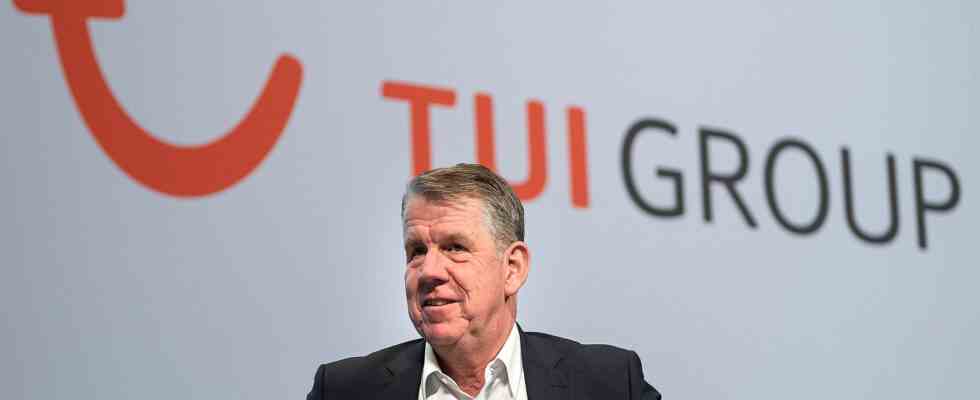Status: 06/24/2022 11:04 a.m
The longstanding TUI boss Fritz Joussen surprisingly left the world’s largest travel group prematurely at the end of September this year. His successor has also already been determined.
The travel group TUI loses its longtime boss. The company announced in the morning that CEO Fritz Joussen would resign early on September 30. The Executive Committee of the Supervisory Board proposes the current CFO Sebastian Ebel as his successor to the Supervisory Board. Ebel will initially take over the post for three years. Joussen’s contract actually ran until September 2025.
The Chairman of the Supervisory Board, Dieter Zetsche, said in a press release: “The conversion, digital transformation and rescue of TUI in the Corona crisis are the lasting merits of Fritz Joussen. The acute crisis phase is over. Sebastian Ebel is a CEO with a strong entrepreneurial spirit ready for the new start after Corona. His focus is on strengthening the balance sheet and profitable growth.”
“Immediate crisis management completed”
Joussen has led the group since 2013. Before his career, the manager, who was born in Duisburg, was head of the German division of the telecommunications group Vodafone. During his tenure at TUI, the group fell into a serious crisis due to the pandemic and was also supported with billions in government aid. The company is now benefiting from the increasing demand for travel.
“The immediate crisis management, which was about ensuring the continued existence of the group, has now been completed,” Joussen is quoted as saying in the press release. Now that the existential crisis has been overcome, now is the right time for a change at the top of TUI.
In the first half of the 2021/22 financial year, i.e. from the beginning of October to the end of March, the company had achieved sales of around 4.5 billion euros. That was more than six times as much as in the same period of the previous year, which was affected by the pandemic. The bottom line is that the consolidated loss halved to 708 million euros.
Investors also seem to regret the loss: the share falls significantly more than the overall market.

